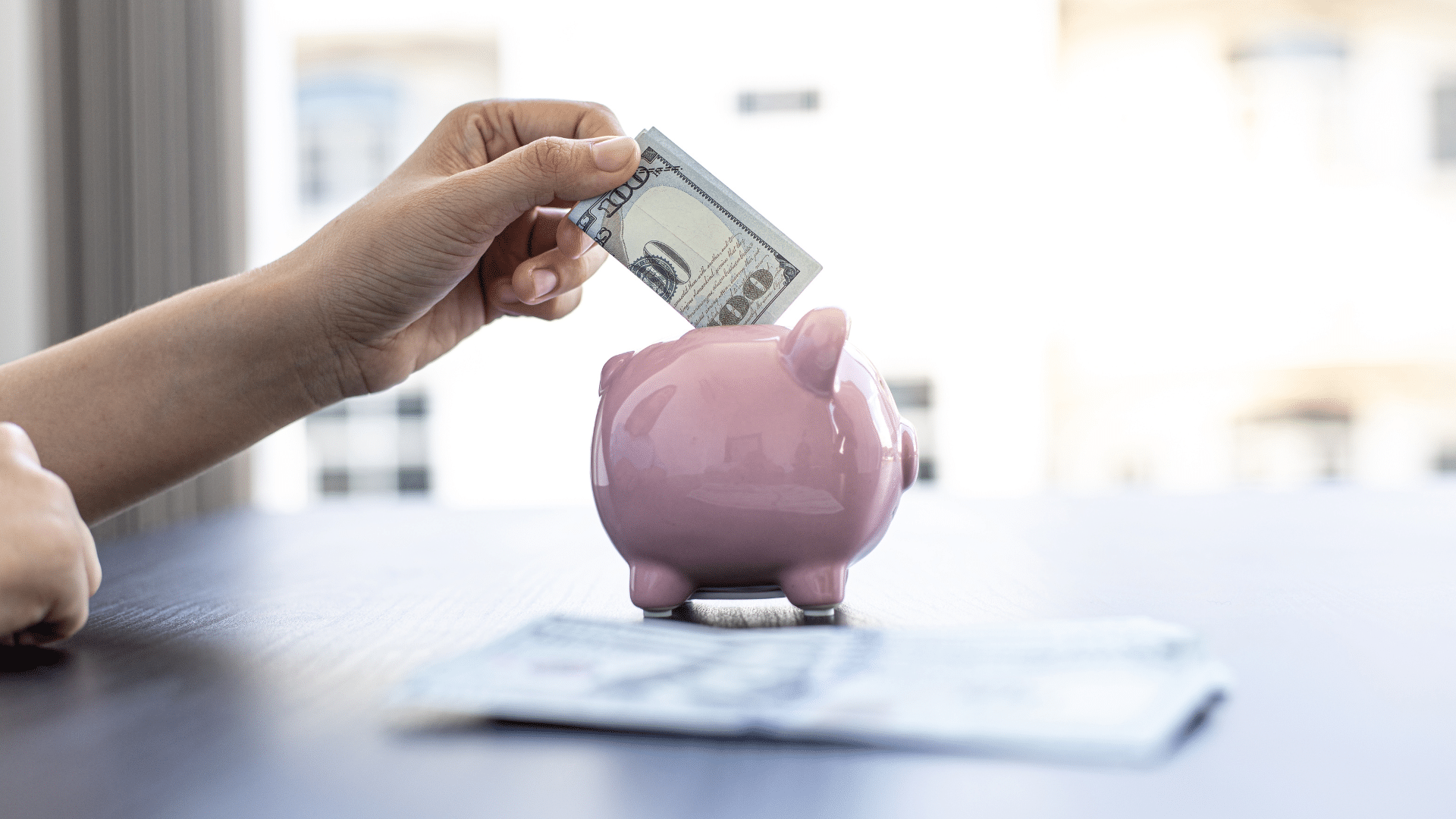How to Save Money During High Inflation: Smart Tips That Actually Work

Rising prices can make everyday choices feel heavier. Whether it’s groceries, gas, or monthly bills, inflation tends to stretch your budget in ways that leave less room for comfort.
During inflation, your money doesn’t go as far as it used to. This makes it even more important to have a plan. Without one, it’s easy to lose track of where your income is going or fall behind on essentials.
With a clear approach to saving money during inflation, you can hold onto what you already have while creating room for future needs. Even small changes can bring more control and confidence when prices feel unpredictable.
Key Takeaways
- Inflation erodes the value of money, making everyday expenses more difficult to manage.
- A clear and updated budget helps track spending and adjust for rising costs.
- Smart shopping habits, such as buying in bulk or utilizing loyalty programs, can help lower monthly bills.
- Cutting routine expenses does not require giving up comfort or quality.
- Extra income from flexible work or paid research studies can ease financial pressure.
- Long-term strategies, such as building an emergency fund and reviewing investments, support stability.
What is Inflation?
Inflation refers to the steady increase in the prices of goods and services over time. As inflation rises, the purchasing power of money falls. This means the same amount of money buys fewer things than it did before.
Inflation is measured using tools such as the Consumer Price Index, which tracks price changes across a range of everyday goods and services.
In recent years, inflation has climbed at a pace not seen in decades. The annual inflation rate in the United States peaked at 8% in June 2022, marking the highest level in over 40 years. Although prices have cooled since then, they remain elevated across key areas, including food, housing, and transportation.
How Inflation Affects Daily Spending
As prices rise, everyday spending habits often need to change. Groceries become more expensive, utility bills creep higher, and even small purchases can start to add up. For many, this leads to a shift in priorities. Essentials account for a larger share of the monthly budget, leaving less room for non-urgent expenditures.
Transportation is one of the first areas where people feel the squeeze. Fuel costs can jump quickly, putting more pressure on drivers. Rent or mortgage payments may remain fixed, but related costs, such as maintenance or insurance, often increase. Dining out, entertainment, and other small luxuries tend to be scaled back as a result.
Even subtle increases in prices can have a compounding effect over time. When inflation is high, the value of saved money can also decline. This adds urgency to making smarter choices with money and finding ways to stretch each dollar further.
Budgeting During Inflation: Where to Start
Creating a clear budget becomes more important when prices rise. A budget helps track where money is going and shows what adjustments can help manage higher costs. During periods of inflation, even small changes in spending can have a noticeable impact over time.
The average American household spends more than 60% of its income on essentials like housing, food, transportation, and healthcare. As these categories get more expensive, a budget provides structure and clarity. It shows how much is available each month, what needs to be covered first, and where there may be room to cut back.
Here are a few steps that can make budgeting during inflation more manageable:
- List all sources of income and fixed expenses: This includes rent or mortgage, utilities, groceries, insurance, and any recurring bills.
- Review flexible spending categories: Non-essential areas like dining out, entertainment, and shopping often offer the most room to adjust without disrupting daily needs.
- Use budgeting tools or apps: Many budgeting apps track transactions in real time, highlight spending patterns, and provide alerts when costs run high.
Households that use these steps are more likely to feel in control of their finances, even during periods of inflation. A budget that reflects current prices and priorities offers both guidance and peace of mind.
Smart Shopping Tips to Beat Rising Prices
Inflation often shows up first at the checkout counter. From groceries to household essentials, many items now cost more than they did in the early 2000s. Food-at-home prices alone rose by over 1.2% in 2024, which can strain even well-planned budgets.
Being thoughtful about how and where you shop can help reduce costs without cutting quality. Here are a few smart shopping habits that can ease the pressure:
- Buy in bulk when it makes sense: Bulk purchases often come with lower prices per unit. Items such as rice, pasta, cleaning supplies, and canned goods tend to store well and cost less when purchased in larger quantities. This approach is most effective for staples that are used frequently and have a long shelf life.
- Use loyalty programs and cashback apps: Many grocery stores and retailers offer loyalty programs that provide discounts, coupons, or points. Cashback apps add an extra layer of savings by returning a percentage of your purchase. Over time, these rewards can accumulate and provide a subtle boost to your budget.
- Compare prices across stores: Prices for the same product can vary from one store to another. Shopping around, either in person or online, helps identify better deals. Many consumers use price-checking websites or browser extensions to spot savings before checking out.
- Plan meals to avoid food waste: Planning meals ahead of time reduces the number of grocery trips and lowers the likelihood of items going to waste. It also helps build a focused shopping list, which can limit impulse spending. Households that plan meals tend to save more money and waste less.
- Look for store brands instead of name brands: Store-brand items often match the quality of national brands but cost less. This applies to many categories, including pantry staples, dairy products, and cleaning supplies. Shoppers who make this switch regularly see noticeable savings over time.
- Shop seasonal produce: Fruits and vegetables that are in season are usually more affordable and fresher. Seasonal shopping not only supports local growers but also brings variety into meal planning without increasing costs.
Cut Everyday Costs Without Sacrificing Quality
When inflation affects daily expenses, small changes can help protect your budget without lowering your standard of living. Many households are now spending more on basic needs, with utilities, transportation, and personal services seeing some of the sharpest increases. Despite these shifts, there are ways to maintain comfort and convenience while keeping costs under control.
Simple adjustments in routine habits, service plans, or energy use can add up to meaningful savings over time.
Below is a table that highlights common spending areas, cost-saving strategies, and the benefits of each approach.
| Spending Area | Cost-Saving Strategy | Why It Helps |
| Utilities | Use energy-efficient bulbs and lower water heater settings | Reduces electricity and gas bills each month |
| Subscriptions | Review streaming, news, or service plans and cancel unused ones | Cuts recurring charges that often go unnoticed |
| Transportation | Use public transit or carpool a few days a week | Lowers fuel costs and reduces vehicle wear |
| Groceries | Shift to store brands and plan meals based on sales | Keeps quality meals affordable and avoids waste |
| Household Products | Buy multipurpose cleaners instead of individual items | Saves money and reduces clutter |
Increase Your Income During Inflation
When prices rise faster than wages, even a well-planned budget can feel tight. Finding ways to increase income becomes an essential part of maintaining financial stability. Extra earnings can help cover essential costs, reduce reliance on credit, and support long-term goals.
Roughly 38% of Americans reported taking on side work in the past year to help manage higher living expenses. Many of these opportunities are flexible and can fit around regular jobs or family responsibilities. Popular options include freelance work, tutoring, online selling, and short-term gigs. These activities allow for more control over time and earnings, making them easier to balance with everyday life.
Paid research opportunities also offer a practical income source. Focus Group Panel connects participants with focus groups, surveys, and product testing assignments that pay for feedback. These options require minimal commitment and can be done from home. For individuals seeking to supplement their income without incurring long hours or added stress, they offer a flexible solution.
Selling unused items can also bring in quick cash. Clothing, electronics, furniture, and household items often have resale value through local marketplaces or online platforms. It helps clear out space while putting money back into circulation.
Long-Term Financial Strategies to Stay Ahead
Short-term savings can ease immediate stress, but long-term strategies help protect your finances over time. As inflation continues to impact the cost of living, planning ahead becomes crucial for achieving stability. These strategies support steady progress, even when prices feel unpredictable. Each approach can be tailored to different goals, timelines, and income levels.
Build an Emergency Fund
An emergency fund provides a safety net for unexpected expenses, such as car repairs, medical bills, or job changes. Financial experts often recommend setting aside enough to cover three to six months of essential costs.
Only 41% of Americans could cover a $1,000 emergency with savings. Even small, regular contributions can provide peace of mind and reduce reliance on credit during financial shocks.
Invest in Inflation-Resistant Assets
Some assets tend to hold value better during inflation. These include real estate, treasury inflation-protected securities, and certain stocks tied to essential goods.
While every investment carries some risk, spreading money across different types of assets can provide a more balanced foundation. People who invest with inflation in mind are more likely to see their money retain value over the long run.
Revisit and Adjust Your Budget Regularly
Inflation often shifts spending patterns, so a budget that worked last year may no longer be as effective. Reviewing income, expenses, and financial goals on a regular basis helps keep your plan realistic.
This also creates space to notice rising costs early and adjust habits before they cause stress. A flexible, updated budget supports smarter choices and keeps priorities in focus.
Conclusion
Inflation affects more than just prices. It changes how money moves through your daily life and influences the decisions you make about spending, saving, and planning ahead. With the right habits, it becomes easier to manage rising costs without compromising your budget or peace of mind.
Each small step, from adjusting how you shop to rethinking how you earn and save, creates more space to stay balanced during uncertain times. These choices can build lasting habits that support both short-term needs and long-term goals.
For those looking to add extra income without changing their routine, the Focus Group Panel offers opportunities to participate in paid focus groups and clinical trials. It is one way to keep your finances steady while sharing your voice where it matters.
FAQ
How does inflation affect credit card debt?
Inflation can make it harder to pay off credit card balances, especially if interest rates rise. Higher monthly expenses may lead to carrying a balance for a longer period, which increases the total cost of debt over time.
Are fixed-rate loans better during inflation?
Fixed-rate loans lock in your interest rate, which can help protect against future increases. This can make monthly payments more predictable, even as the cost of living goes up.
Can switching banks help save money during inflation?
Some banks offer higher interest rates on savings accounts or fewer fees. Switching to a more competitive bank or credit union may help stretch your money further.
Do inflation-adjusted savings accounts exist?
Certain accounts, like Treasury Inflation-Protected Securities (TIPS), are designed to keep pace with inflation. These options may help preserve the value of long-term savings.
How does inflation impact retirement planning?
Rising prices can erode the future value of retirement savings. Planning ahead with inflation in mind helps ensure your income needs are still met later in life.





